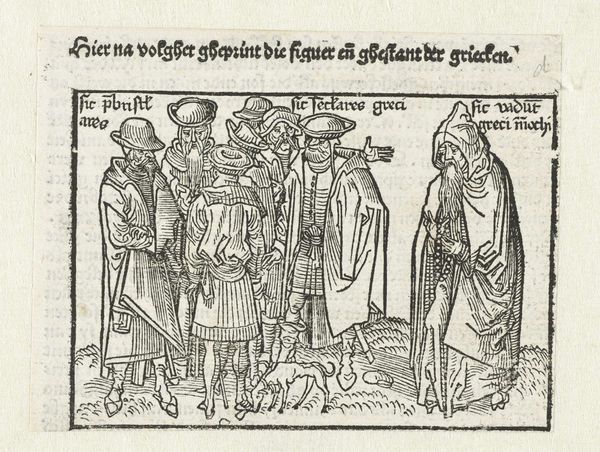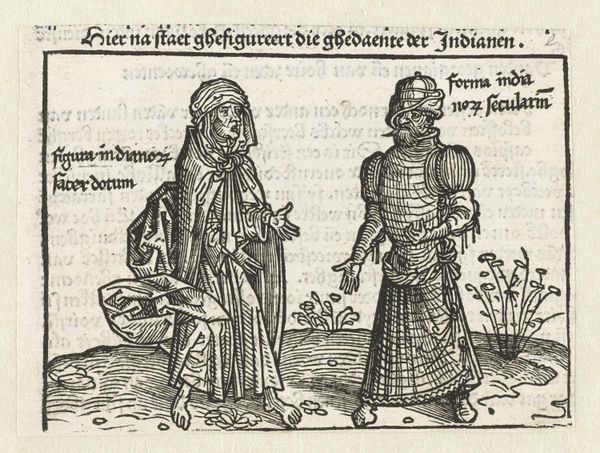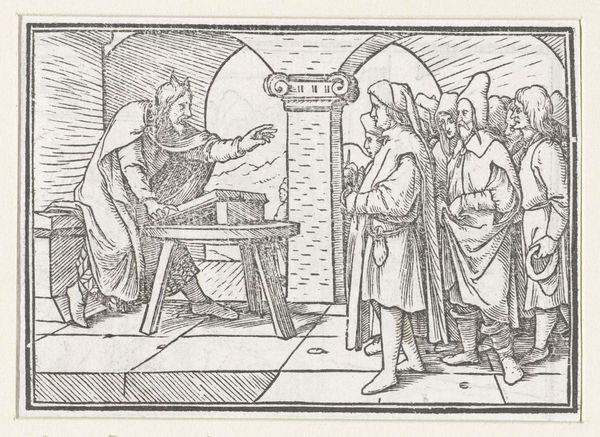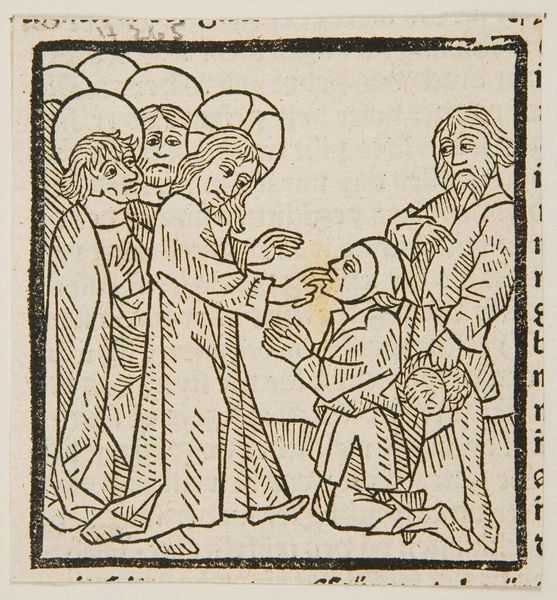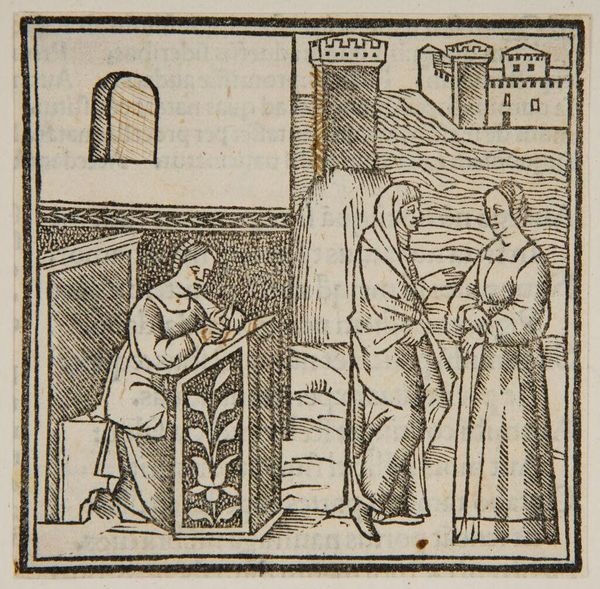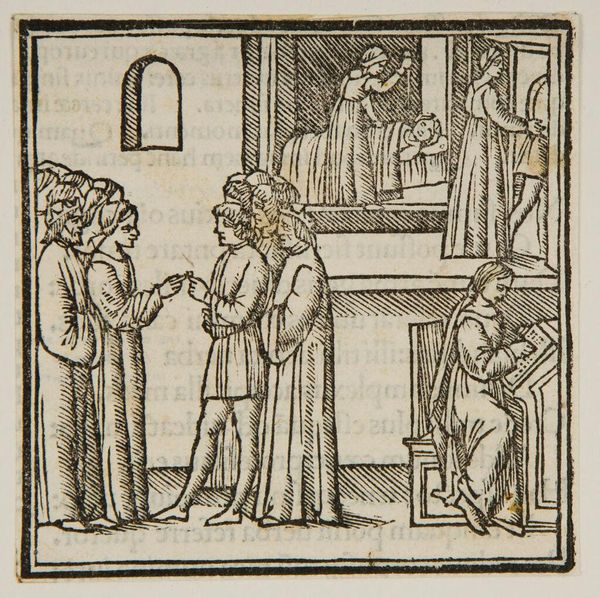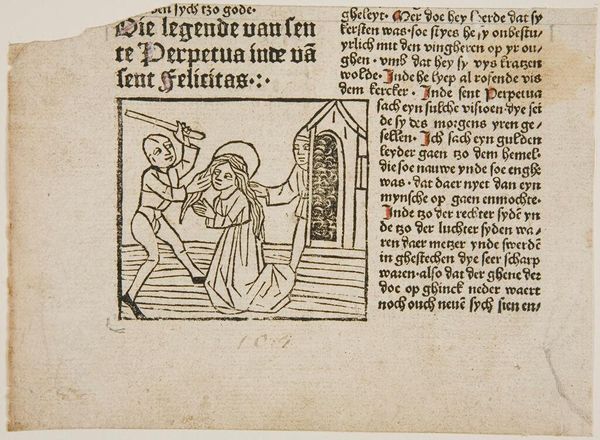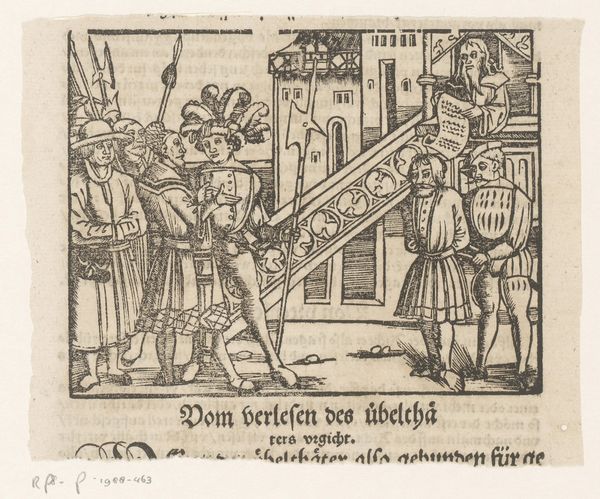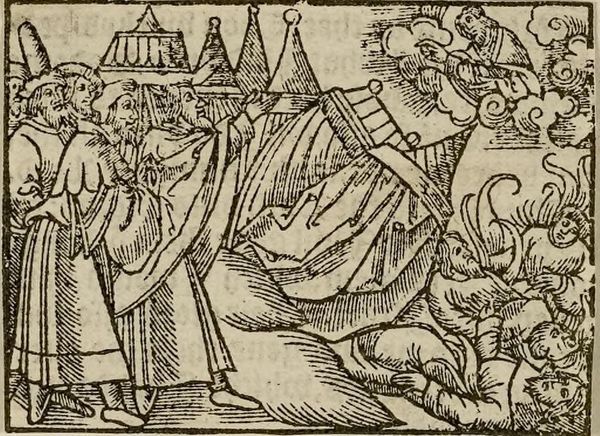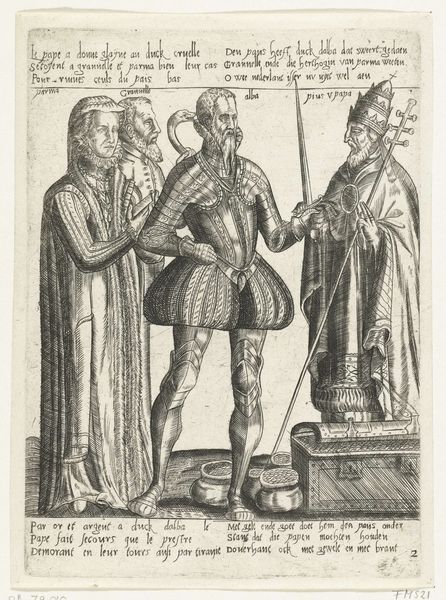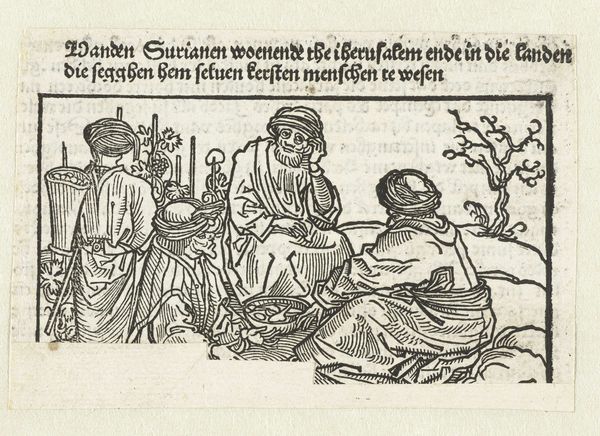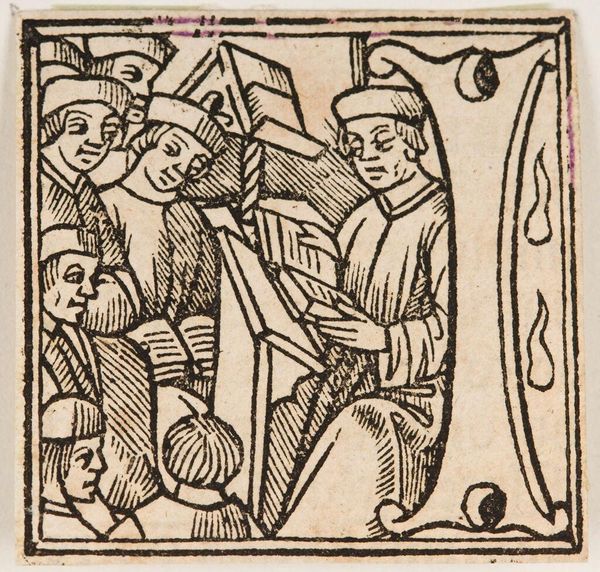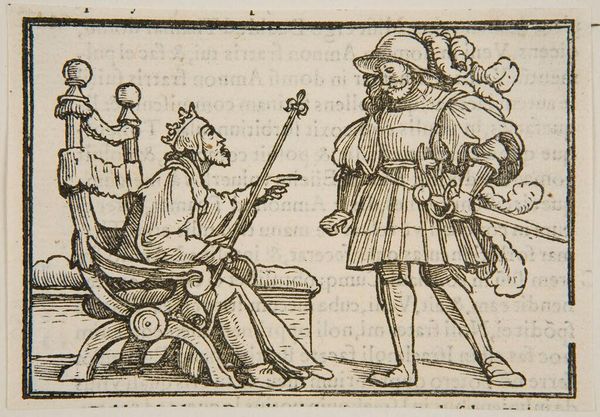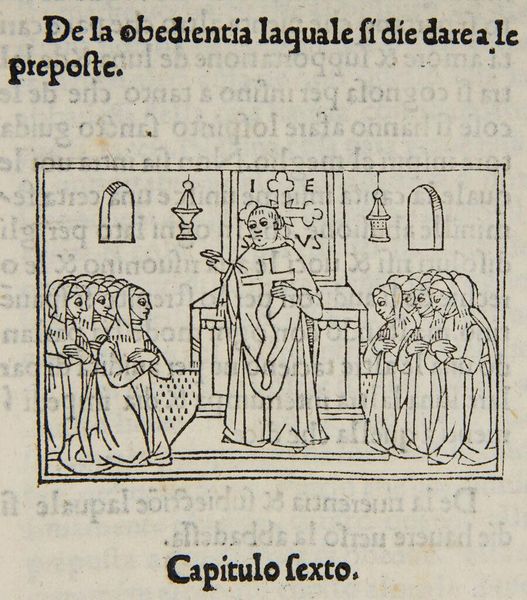
De joodse man 1486 - 1488
Dimensions: height 85 mm, width 115 mm, height 107 mm, width 122 mm
Copyright: Rijks Museum: Open Domain
This woodcut depicts a Jewish man seated at a money-changing table, a scene laden with symbolic meaning. He is positioned amidst bags of coins, emphasizing his role as a moneylender, a profession often associated with Jewish people in the medieval period. The pointing gesture of the figure is not merely descriptive; it echoes through centuries of art, appearing in depictions of judgment, accusation, and authority. The index finger, seemingly innocuous, has served as a powerful tool across cultures and ages. Consider, for instance, how in early Christian art, Christ points to heaven, while in later periods, the same gesture might accuse or condemn. The emotional weight of this image resides in the viewer's subconscious understanding of the symbols. The association of the Jewish figure with wealth evokes deep-seated societal anxieties about money and power, tapping into a collective memory of prejudice. This interplay of symbols ensures that the image's impact is felt on a level far beyond the purely visual. The pointing hand is a constant reminder of a complex, ever-evolving historical narrative, shaped by a spectrum of social and political forces.
Comments
No comments
Be the first to comment and join the conversation on the ultimate creative platform.
